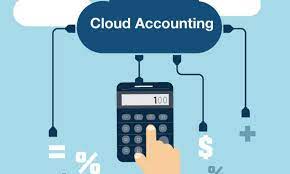Tax accountants come in a variety of forms. It includes certified public accountants, registered officers, lawyers, and several others who do not have formal certification. For those who need the services of tax accountants, you need to know the full job description to know what to expect from them. So, you want your personal tax accountant to be knowledgeable about tax planning and to file your income tax return correctly. You put your most sensitive details in his or her hands. So, they are aware of your marriage, wages, children, and social security numbers – the specifics of your financial life.
The majority of tax return preparers offer excellent and competent tax services. However, each year, some taxpayers suffer financial losses as a result of selecting the incorrect tax return preparer. Check out our advice on how to choose a personal tax accountant and how to stop dishonest “ghost” return preparers.
How to Get a Job as a Tax Accountant
If you enjoy dealing with taxes and assisting people in maximizing their refunds or minimizing the sum they owe, a career as a tax accountant might be for you. Before making this decision, you should consider the following accounting career information:
- Tax Accountant salary
- Education Requirements
- Tax Accountant Job Description
- Typical career progression
- Overview of Tax Accounting Education
Generally, the majority of employers expect tax accountants to have a bachelor’s degree in accounting or a similar profession. Those pursuing a master’s degree in accounting may choose to specialize in tax planning or auditing. You might even consider becoming a Certified Public Accountant (CPA).
Another option is to enroll in a credential program that will train you for entry-level work as a tax preparer. Most community colleges and universities sell these services. The following are some of the courses you can expect to take at this level:
- Taxes for Corporations
- Estate Taxes
- Payroll Taxes
- How to read tax schedules.
- Tax issues facing people who are retiring
- How to interview taxpayers
- How to figure out your filing status and exemptions.
- Capital Gains
- How to Calculate Refunds and Amounts
With a bachelor’s degree in accounting, you’ll be more qualified to take on supervisory or tax auditing responsibilities than with just a diploma.
Regardless of which choice you choose, tax accountants must become licensed CPAs to remain in compliance with U.S. regulations. Also, one must register as a tax preparer with the federal government. You will get a Preparer Tax Identification Number (PTIN). You use it on all returns you assist in preparing for your clients.
Job Description for a Tax Accountant
Some of the basic job descriptions for a tax accountant include;
#1. Investigate Financial Statements
When they prepare tax return papers, tax accountants work with clients to get a good picture of their overall financial position. Accountants review all applicable financial statements to ensure they comply with tax laws and regulations. They also provide the most realistic picture of a client’s financial condition.
#2. Make Budget Plans
One of tax accountants’ key duties is to assist their clients in determining ways to save money and adhere to a viable budget. Accountants also assist clients in strategizing ways to increase their income and overall profitability. This includes informing them of how such adjustments may affect their tax return details.
#3. Organize Financial Documents
Tax accountants not only assist their clients in preparing tax return papers. They also assist them in organizing their personal financial statements. Tax accountants keep their clients’ records on file and can access them if a client has a particular request that necessitates a reference to prior documents.
#4. Calculating Taxes
Tax accountants compute the taxes that their clients owe to the Internal Revenue Service (IRS), file their tax returns, notify them of any refunds or balances owed, and ensure that they do not incur fines for missing deadlines. This is the major job description of a tax accountant.
#5. Accounting System Inspection
Accounting systems must be reviewed by successful tax accountants to ensure they are as reliable and accurate as possible. This helps accountants to identify any problems or mistakes and correct them as appropriate.
#6. Communicating with Customers
Individuals and company owners alike prefer to take part in the tax preparation process. It is important for clients to feel as if they understand what to expect from their tax returns as well as the process of completing their records. As a result, tax accountants must consult with their clients and provide them with accurate information on a timely basis.
Personal Tax Accountant
According to a NerdWallet survey a few years ago, roughly one-third of us employ tax preparers or tax consultants to file our tax returns. However, few of us know anything about them — or how to find the right tax preparer.
According to the study, a full 80% of people who used tax preparers never asked about the preparer’s qualifications. About 75% never asked whether the preparer would represent them in a tax audit. This is incredible, as hiring a tax preparer or tax planner entails disclosing information about everything from your income to your bank accounts, your marriage, your children — and your Social Security number.
Tips on getting the right Personal Tax Accountant
So, if you’re looking for assistance, here are seven pointers to help you find the right personal tax accountant or tax advisor.
#1. Inquire about a Preparer Tax Identification Number (PTIN)
Anyone who files or assists in the preparation of federal tax returns for compensation is required by the IRS to have a PTIN. Volunteer tax preparers do not need PTINs, as stated in the phrase “for reimbursement”. So, make sure your tax preparer includes his or her PTIN number on your return; the IRS needs it as well.
#2. Do you need a CPA, a law license, or the Enrolled Agent designation?
A PTIN is reasonably easy to obtain, so go the extra mile and hire a credentialed preparer — someone who is either a certified public accountant (CPA), licensed attorney, a registered agent (EA), or has completed the IRS’ Annual Filing Season program. Accredited Business Accountant/Advisor and Accredited Tax Preparer are two services that will assist preparers in meeting the Annual Filing Season Program requirement. All of these qualifications necessitate varying quantities of study, tests, and continuing education.
How can you locate the best personal tax accountant in your area who has the qualifications you require? One method is to look at the IRS’s directory. Preparers with PTINs and IRS-recognized professional certificates are included. So, volunteer preparers and preparers with only PTINs will not be included in the database.
#3. Seek out mates in high places.
Membership of a professional group, such as the National Association of Tax Professionals, the National Association of Enrolled Agents, the American Institute of Certified Public Accountants, or the American Academy of Attorney CPAs, is often a plus in a tax advisor, as most have codes of ethics, professional conduct standards, and numerous credential programs.
#4. Compare the Fees
What do tax preparers charge? According to the National Society of Tax Professionals, the average cost for filing a Form 1040 is $203, and tax preparers who do not use a flat rate usually charge $138 per hour. Often, tax preparers charge a minimum fee plus a cost depending on the complexity of your return (the minimum fee varies from $160 to $172 on average), or they charge a fixed fee for each form and schedule required in your return (filing a Schedule C, for example, may cost an additional $84 on average). If a tax preparer charges you based on the amount of your refund or claims to be able to get you a better refund than the next person, that’s a red flag.
#5. Tax consultants who do not e-file should be avoided.
Any paid preparer who does more than ten returns for clients is required by the IRS to file electronically via the IRS’ e-file system. If your tax preparer does not give an e-file, it may be an indication that they aren’t doing as much tax preparation as you thought.
#6. Confirm that they plan to sign on the dotted line.
Paid preparers are required by law to sign their clients’ returns and supply their PTINs. Never sign a blank tax return because the preparer will place everything on it, including their own bank account number, in order to steal your refund.
#7. Check to see if they’d have your back.
Enrolled officers, CPAs, and lawyers with PTINs will represent you before the IRS in matters such as investigations, payments and collection disputes, and appeals.
Preparers who complete the Annual Filing Season Program are only permitted to represent clients in limited circumstances.
It is also important to be available. Even after the filing season has ended and your tax return has been filed, the best tax preparers will take your call, respond to your email, or invite you to come in for a visit.
Can a tax accountant represent me in front of the IRS or other tax authorities?
Yes, a tax accountant can represent you in front of the IRS or other tax authorities, but this may depend on the individual tax accountant and the jurisdiction they practice in. Some tax accountants have an enrolled agent (EA) designation, which allows them to represent taxpayers before the IRS.
How can a tax accountant help me with tax preparation and filing?
A tax accountant can help you with tax preparation and filing by ensuring that your tax return is accurate, complete, and filed on time. They can also help you take advantage of tax deductions and credits, minimize your tax liability, and avoid mistakes that could lead to an audit or penalties.
Can a tax accountant help me with sales tax and other indirect taxes?
Yes, a tax accountant can help you with sales tax and other indirect taxes, including but not limited to, value-added tax (VAT), goods and services tax (GST), and excise tax. They can advise you on compliance requirements, help you register for tax and ensure that you are paying the correct amount of taxes on time.
How does a tax accountant stay up to date on tax laws and regulations?
Tax accountants stay up to date on tax laws and regulations by attending seminars, conferences, and webinars, reading trade journals and professional publications, and participating in continuing education programs. They also have access to tax research databases and other resources that help them stay informed on the latest tax developments.
What happens if I don’t have a tax accountant and miss a tax deadline?
If you miss a tax deadline and don’t have a tax accountant, you may face late filing and late payment penalties, as well as interest charges. In addition, the IRS may initiate an audit or seize your assets to collect the taxes owed. Having a tax accountant can help you avoid these consequences by ensuring that your taxes are filed on time and in accordance with the law.
Can a tax accountant help me with back taxes?
Yes, a tax accountant can help you with back taxes. They can advise you on the best course of action, whether it’s negotiating a payment plan with the IRS or negotiating an Offer in Compromise. They can also represent you in front of the IRS and help you resolve the issue as quickly and efficiently as possible.
How often should I meet with my tax accountant?
The frequency of meetings with your tax accountant will depend on your individual needs and circumstances. Some people may only need to meet with their tax accountant once a year, while others may need to meet more frequently. It’s a good idea to have a regular check-in with your tax accountant, especially if you have changes in your financial situation or if you have a complex tax situation.
Summary
Tax return preparer fraud is one of the most common types of tax scams. The IRS offers advice on how to stop unscrupulous tax preparers and is committed to prosecuting compensated tax return preparers who violate the law.
If you have been financially harmed as a result of a tax return preparer’s misconduct or improper tax preparation practices, file a complaint.
To check the status of a CPA’s license or to learn if any disciplinary action has been taken against the accountant, contact your state’s board of accountancy. You will find out whether an EA has ever been censured or subjected to any disciplinary action by contacting the IRS Office of Professional Responsibility. You should also contact your local chamber of commerce. Also, know that it is actually your responsibility, not the accountant’s, to ensure the accuracy of the details on your tax return.
Tax Accountant FAQs
What does a tax accountant do?
Accountants that specialize in the laws, rules, and regulations for the preparation and calculation of federal, state, and local taxes are typically known as tax accountants. Tax accountants provide a range of tax-related services to both individuals and businesses, which can include preparing and filing tax returns.
What is the difference between a CPA and a tax accountant?
Most tax accountants are Certified Public Accountants. Non-CPAs can prepare and compile financial statements, whereas CPAs can also assist their clients during IRS audits. In addition to preparing taxes, tax accountants assist individuals and businesses in financial planning and estate planning
Do you need a CPA to do taxes?
An accountant needs to be a registered tax agent to complete your tax return
Is tax accounting a good career?
In fact, the accounting field is expected to grow faster than the average career at a 6% growth rate, according to the Bureau of Labor Statistics. Joining this lucrative career means opening the door to several new opportunities and a rewarding way to earn a living
- EARNINGS BEFORE TAX (EBT): Overview, Formular, Importance
- Ach Credit: All you need to know detailed(+ free tips)
- TAX LIEN SALE: +Guide for lien sale cars
- Financial Audit: All you need, Simplified!! (+ Detailed pdf)
- DEPRECIATION ACCOUNTING: Definition, Methods, Formula & All you should know.
- BACK OF CHECK: How to Sign, What to Write & Wrong Endorsement Solutions
- INTERMEDIATE ACCOUNTING: Simple Beginner’s guide






